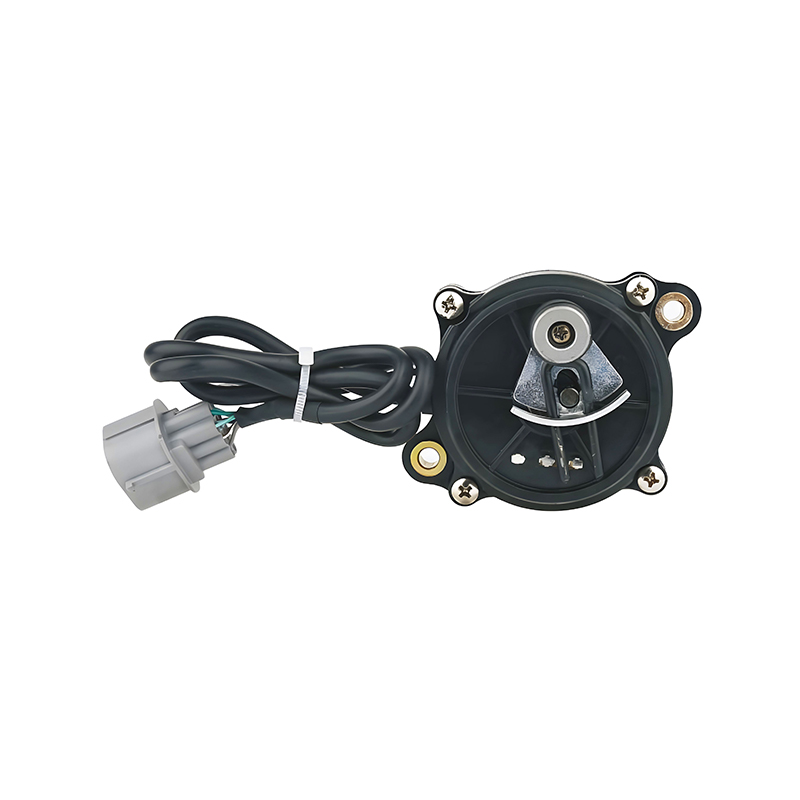In the automotive industry, the durability and performance of components such as car window motor parts play a crucial role in overall vehicle reliability. Among these components, the window glass motor is essential for the smooth and consistent operation of power windows, a feature now common in more modern vehicles. However, one of the challenges faced by manufacturers and users alike is the gradual wear of gears within these motors, which can advance to noise, reduced efficiency, and eventual failure.

A key factor influencing the longevity of the window glass motor is the lubrication applied to its gear system. Over time, inadequate or inefficient lubrication can accelerate gear wear, especially under constant use and varying environmental conditions. Recognizing this, recent advancements in lubrication methods have aimed to reduce gear wear in car window motor parts, extending the functional life of the motor and improving user experience.
Traditionally, window glass motors have relied on standard grease applications during assembly. While these lubricants provide a basic protective layer, they may not maintain their properties under long-term stress or fluctuating temperatures inside a vehicle door panel. As the motor operates repeatedly to raise and lower the window glass, the gears encounter friction and pressure, which, without proper lubrication, gradually degrade their surfaces.
The updated lubrication method involves using specialized grease formulations designed to maintain consistency and reduce friction over extended periods. These greases contain additives that enhance their adhesion to metal surfaces, ensuring that car window motor parts receive continuous protection against wear. Additionally, they offer improved resistance to moisture and contaminants, which are common within door cavities due to environmental exposure.
Implementing this lubrication update requires adjustments in the production and maintenance of window glass motors. Manufacturers now apply the new grease in precise quantities during assembly, ensuring even coverage on critical gear surfaces. This not only helps maintain smooth gear meshing but also reduces the risk of lubricant displacement during motor operation. For maintenance, technicians are advised to inspect and replenish lubrication during service intervals, especially for vehicles that experience frequent use of power windows.
The benefits of this updated lubrication approach become evident during extended use. Window glass motors treated with the improved grease demonstrate less noise and smoother operation compared to those using traditional lubricants. The reduction in gear wear also translates to fewer motor replacements and repairs, which can be costly and time-consuming. Vehicle owners may notice their power windows responding more reliably, with less hesitation or grinding sounds.
One notable aspect of car window motor parts affected by lubrication quality is the plastic or metal gears inside the motor assembly. These gears are responsible for translating the rotational motion of the motor shaft into the linear movement needed to raise or lower the window glass. As such, their condition directly impacts the motor's performance. Excessive wear on these gears due to poor lubrication can cause slipping or incomplete window movement.
By improving lubrication methods, manufacturers are addressing these common wear issues. The new grease reduces frictional heat buildup, a factor that can degrade both the lubricant and gear materials over time. This contributes to maintaining the structural integrity of the gears within the window glass motor, ensuring consistent power transmission during operation.
Moreover, the updated lubrication helps mitigate the effects of dust, dirt, and moisture infiltration, which are frequent challenges in door environments. These contaminants can mix with grease and form abrasive compounds that accelerate wear. The enhanced lubricant's chemical stability and protective qualities prevent this degradation, preserving the smooth engagement of car window motor parts.
From an environmental perspective, longer-lasting window glass motors contribute to reduced waste and resource consumption. Fewer replacements mean less material usage and a lower environmental impact associated with manufacturing and disposal. This aligns with broader trends in automotive design that emphasize durability and sustainability.
In conclusion, the update in lubrication methods represents a meaningful improvement for car window motor parts and window glass motors. By focusing on specialized grease formulations and precise application techniques, manufacturers can significantly reduce gear wear during long-term use. This advancement enhances the reliability and performance of power window systems, benefiting both vehicle producers and end-users.
As power windows remain a standard feature in vehicles worldwide, attention to components like the window glass motor and its lubrication will continue to be important. Innovations like this not only improve individual part lifespan but also contribute to the overall driving experience by ensuring smooth, quiet, and dependable window operation.
Maintaining proper lubrication and understanding its role in the health of car window motor parts can help extend the life of these motors. For vehicle owners and service professionals alike, awareness of such improvements supports better maintenance practices and, ultimately, more reliable automotive systems.
Your email address will not be published. Required field are marked*